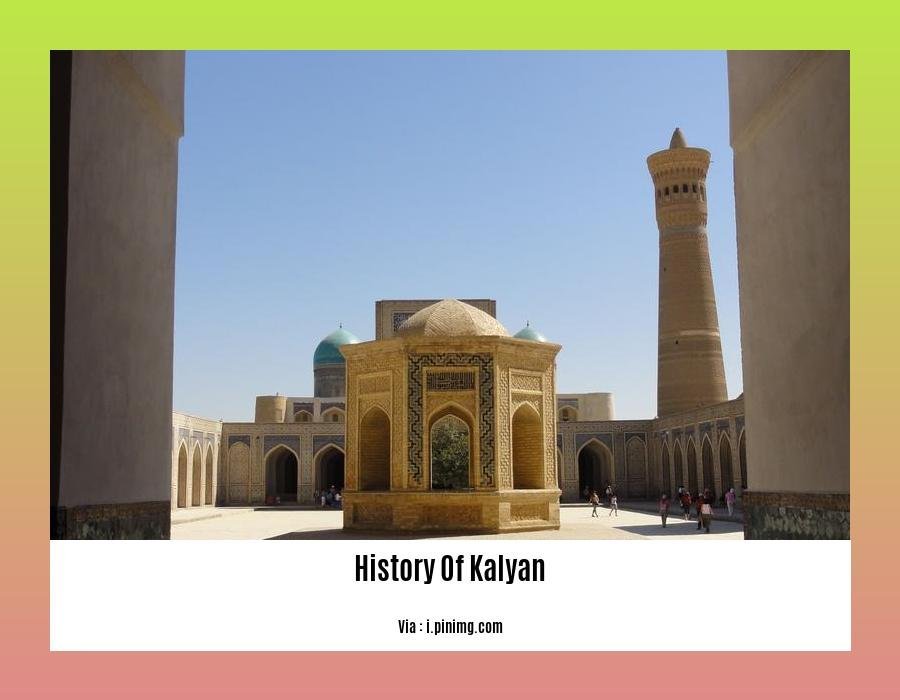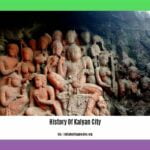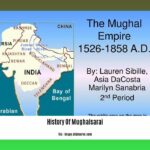Embark on a captivating journey through time as we unveil the enchanting history of Kalyan, a city steeped in cultural heritage and fascinating tales. From its ancient origins to its role as a significant railway junction, Kalyan has witnessed the ebb and flow of history, leaving behind a rich legacy waiting to be explored. Join us as we delve into the annals of Kalyan, uncovering the stories that shaped its past and continue to resonate in the present.
Key Takeaways:
- Kalyan is situated in Maharashtra’s Thane district, along the Ulhas River.
- Kalyan-Dombivli Municipal Corporation includes Kalyan and its adjoining township, Dombivli.
- A fort wall built during Shah Jahan’s reign and completed under Aurangzeb in 1694 A.D. encompasses an area of 70 acres with four gates and 11 towers.
- Kalyan’s population predominantly consists of Marathi-speaking Hindus, with a substantial Muslim minority.
- The city experiences a tropical monsoon climate with abundant rainfall during the monsoon season and a dry period throughout the rest of the year.
- Trains, buses, and auto-rickshaws serve as the primary modes of transportation in and around Kalyan.
- Kalyan alberga numerous educational Institutions, including Birla College of Arts, Science & Commerce and Mar Thoma Special School for Children in Need of Special Care.
History of Kalyan
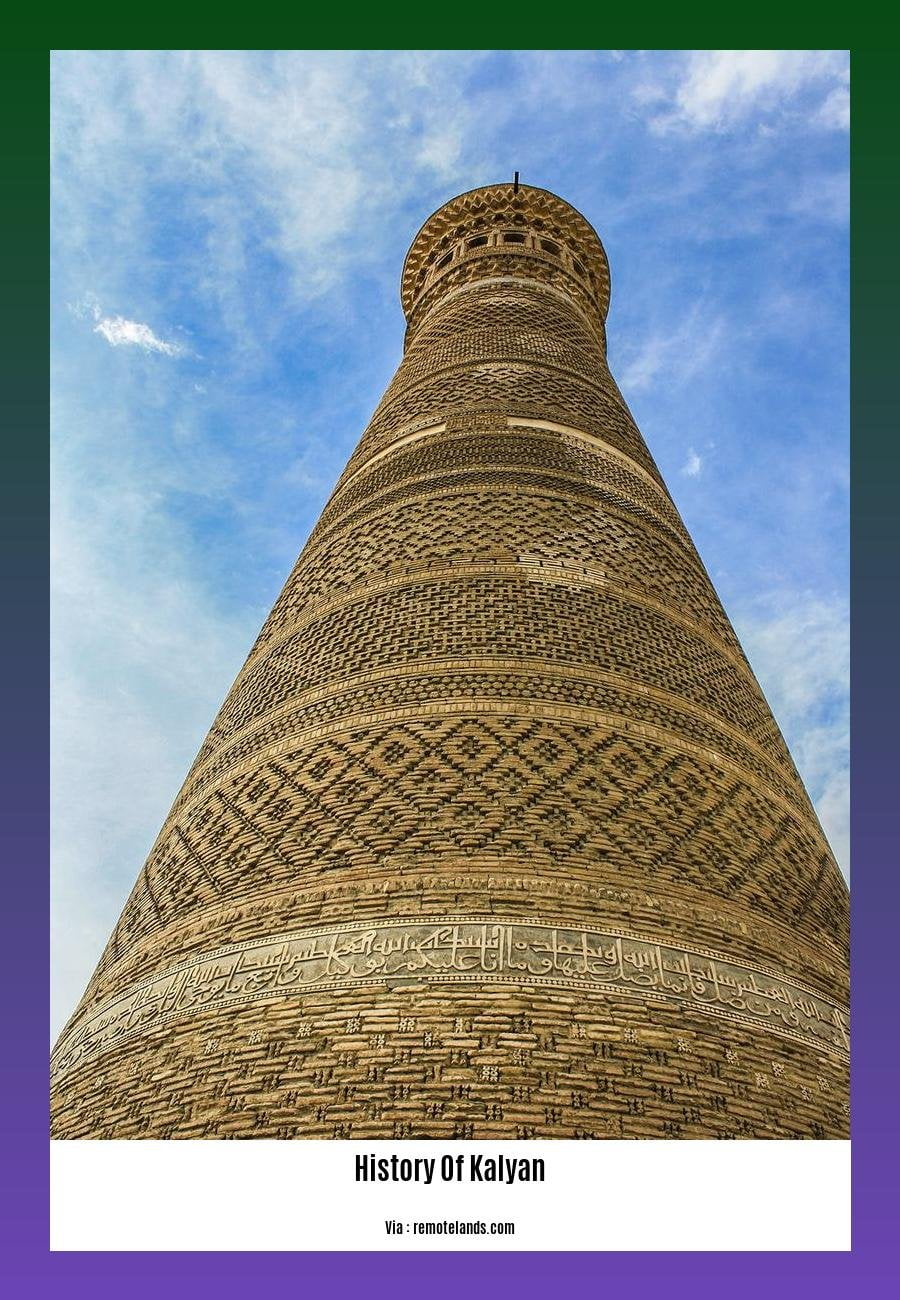
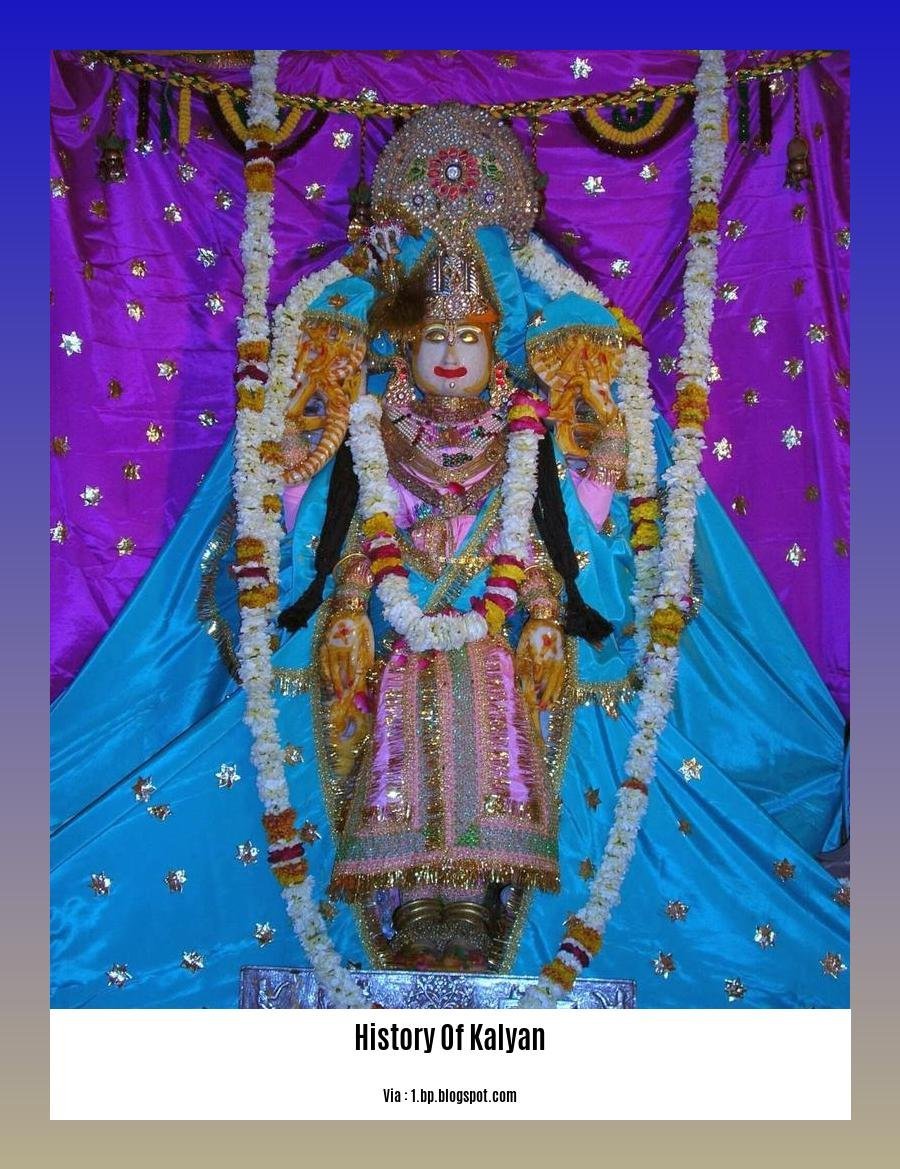
Kalyan, a city nestled on the banks of the Ulhas River in Maharashtra, India, possesses a rich and storied history that has shaped its cultural tapestry. Embark on an enthralling journey as we delve into the fascinating past of this vibrant city.
Fortified Walls of Legacy
In the year 1694, during the Mughal Empire’s reign, a testament to architectural prowess emerged in Kalyan—a formidable fort wall encasing an area of 70 acres. Constructed under the watchful eyes of Shah Jahan and completed under the rule of Aurangzeb, this majestic structure stood tall with four imposing gates and 11 towers, serving as a symbol of power and resilience.
Maratha Empire’s Enduring Influence
The Maratha Empire, renowned for its valor and strategic prowess, left an indelible mark on Kalyan’s history. The city flourished under their rule, becoming a significant trade hub and a center of cultural exchange. The Maratha legacy continues to resonate in the hearts of Kalyan’s people, shaping their customs, traditions, and language.
Changing Tides: British Colonial Rule
In the 18th century, Kalyan fell under the sway of the British East India Company. The colonial era brought about significant transformations in the city’s infrastructure, economy, and social fabric. Kalyan became a bustling commercial center, attracting traders and merchants from across the region. The British influence left a lasting impact on Kalyan’s cityscape, with colonial-era buildings still standing as reminders of that era.
Post-Independence and Beyond
With India’s independence in 1947, Kalyan embarked on a new chapter of growth and development. The city expanded rapidly, becoming a major industrial hub in the Thane district. Kalyan’s strategic location and excellent connectivity to Mumbai, India’s financial capital, fueled its transformation into a thriving metropolis. Today, Kalyan stands as a testament to its rich history, blending the charm of its ancient heritage with the dynamism of a modern urban center.
In Essence
Kalyan’s history is a captivating narrative of resilience, cultural diversity, and the indomitable spirit of its people. From the grandeur of its ancient fort to its vibrant present, Kalyan continues to captivate visitors and locals alike. As we look to the future, Kalyan is poised to continue its remarkable journey, weaving new chapters into its storied history.
Explore Kalyan’s Historical Landmarks
To fully immerse yourself in Kalyan’s rich past, embark on a journey through its historical landmarks:
Kalyan Fort: Admire the architectural marvel of this 17th-century fort, a testament to the city’s strategic importance.
Birla College: Step into the hallowed halls of this prestigious institution, founded in 1946, and learn about Kalyan’s contributions to education.
Talao Pali: Experience the tranquility of this ancient lake, a serene haven amidst the city’s hustle and bustle.
Ulhas River: Take a leisurely stroll along the banks of the Ulhas River, the lifeblood of Kalyan, and witness its natural beauty.
Durgadi Fort: Uncover the secrets of this lesser-known fort, which once guarded Kalyan’s eastern flank.
To learn more about the transformative journey of Kalyan City, uncover its rich history. history of kalyan city
Delve into the fascinating evolution of Kanji, the intricate writing system that has shaped East Asian languages. history of kanji
Discover the inspiring story behind Kendriya Vidyalaya, a pioneering educational institution that has revolutionized learning in India. history of kendriya vidyalaya
Explore the remarkable legacy of Kendriya Vidyalaya Sangathan, a visionary organization dedicated to providing quality education across India. history of kendriya vidyalaya sangathan
History Of Kalyan In English
Kalyan’s journey through time is a fascinating tale of conquest, cultural assimilation, and industrial transformation. Let’s delve into the annals of history and explore the significant milestones that have shaped this vibrant city:
Mughal Era: (1526-1707)
The Mughal Empire, with its grandeur and architectural prowess, left a lasting imprint on Kalyan. Under the reign of Shah Jahan, the city’s fortifications were strengthened, transforming it into a strategic military outpost.
Maratha Rule: (1662-1780)
The Marathas, renowned for their military prowess, wrested control of Kalyan from the Mughals in 1662. Their reign ushered in a period of stability and prosperity, with Kalyan emerging as a key trade and commerce hub.
British Colonialism: (1780-1947)
The arrival of the British East India Company in the 18th century marked a new chapter in Kalyan’s history. The city’s strategic location on the Ulhas River made it a vital trading center, and Kalyan flourished under British rule.
Post-Independence: (1947-Present)
With India’s independence in 1947, Kalyan embarked on a new path of development. The city witnessed rapid industrialization, with the establishment of numerous factories and manufacturing units. Kalyan also emerged as a प्रमुख educational hub, with the establishment of prestigious institutions like Birla College of Arts, Science & Commerce.
Key Takeaways:
- Kalyan’s history is a tapestry of diverse influences, from Mughal grandeur to Maratha valor and British colonial rule.
- The city’s strategic location on the Ulhas River has been a catalyst for trade and commerce throughout its history.
- Kalyan’s growth and development in the post-independence era have been driven by industrialization and education.
Citations:
Kalyan | Urban Development, Industrialization, and History
Kalyani, West Bengal – Wikipedia
FAQ
Q1: What are some of the key historical events that have shaped Kalyan?
A1: Kalyan has a rich history dating back centuries. Some key events include the construction of a fort wall during the reign of Shah Jahan, the city’s incorporation into the Bijapur kingdom, its subsequent fall to the Marathas and then to the British.
Q2: Who is credited with the development of modern Kalyan?
A2: The development of modern Kalyan is largely attributed to Bidhan Chandra Roy, the former Chief Minister of West Bengal. Under his leadership, the foundation stone for the town was laid in 1951.
Q3: What is the significance of the fort wall in Kalyan’s history?
A3: The fort wall, built during the Mughal period, played a crucial role in protecting the city from invaders. It enclosed an area of 70 acres and featured four gates and 11 towers, serving as a testament to Kalyan’s strategic importance.
Q4: What is the predominant language spoken in Kalyan?
A4: Marathi is the predominant language spoken in Kalyan, reflecting the city’s cultural and linguistic heritage. However, Urdu and Hindi are also spoken by significant minorities.
Q5: What are some of the educational institutions located in Kalyan?
A5: Kalyan is home to several educational institutions, including Birla College of Arts, Science & Commerce, which offers a range of undergraduate and postgraduate courses, and Mar Thoma Special School for Children in Need of Special Care, which provides specialized education for children with disabilities.
- China II Review: Delicious Food & Speedy Service - April 17, 2025
- Understand Virginia’s Flag: History & Debate - April 17, 2025
- Explore Long Island’s Map: Unique Regions & Insights - April 17, 2025
